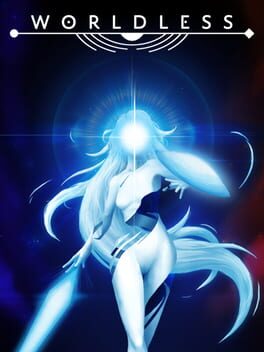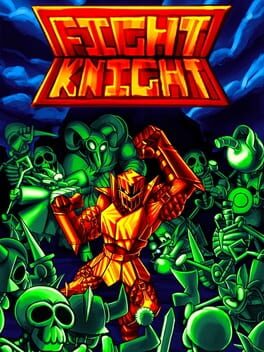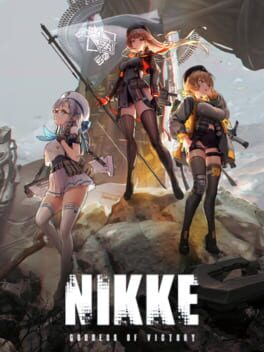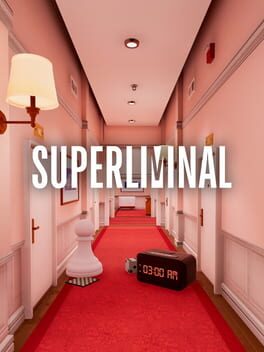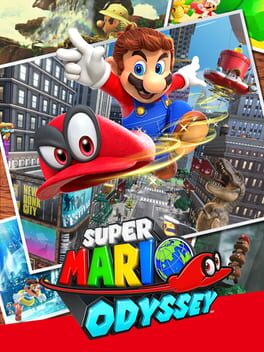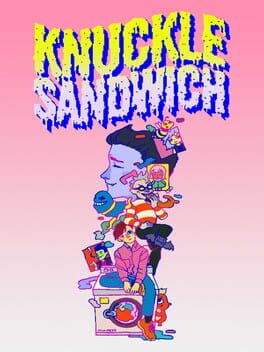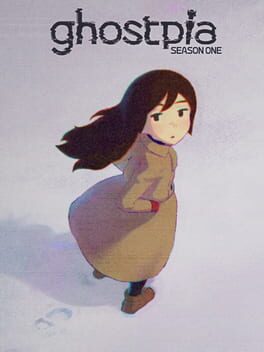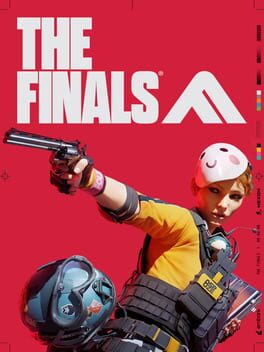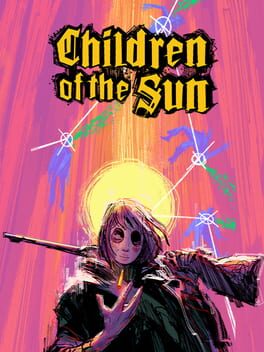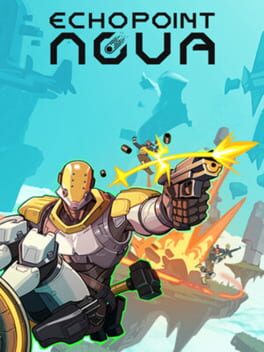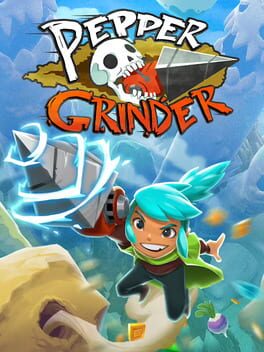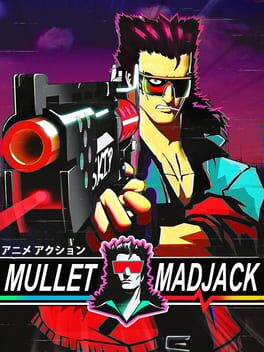WegerBeger
23 reviews liked by WegerBeger
Worldless
2023
One of the more interesting games I've played a good while.
Worldless is at it's core a turn based rhythm game where you need to master patterns (and how to react to them). When it's good, it's REAL good. Some fights felt downright euphoric once I understood how to tackle them. But god, sometimes it's just such a frustrating combat system to engage with. It's very unforgiving in the sense that it leaves very little room for error. If you fuck up, chances are, the enemy wipes you and you have to start the fight over. Which I'm of two minds of. On one hand, this lends to the hostile nature of the game and makes the highs feel higher. But it also makes the lows feel lower and occasionally felt akin to banging my head against a wall. I do appreciate what it's going for. TLDR; skill issue.
The metroidvania stuff is good. There's are fun platforming puzzle sections sprinkled throughout the map that made it interesting enough to traverse. But overall it's a little unremarkable in that respect.
Graphically, the simply cosmic art style looks great. The animations in combat look especially punchy. I dug it.
So yeah. Worldless is an interesting game. Not really an easy one to recommend but I'm glad I played it.
Worldless is at it's core a turn based rhythm game where you need to master patterns (and how to react to them). When it's good, it's REAL good. Some fights felt downright euphoric once I understood how to tackle them. But god, sometimes it's just such a frustrating combat system to engage with. It's very unforgiving in the sense that it leaves very little room for error. If you fuck up, chances are, the enemy wipes you and you have to start the fight over. Which I'm of two minds of. On one hand, this lends to the hostile nature of the game and makes the highs feel higher. But it also makes the lows feel lower and occasionally felt akin to banging my head against a wall. I do appreciate what it's going for. TLDR; skill issue.
The metroidvania stuff is good. There's are fun platforming puzzle sections sprinkled throughout the map that made it interesting enough to traverse. But overall it's a little unremarkable in that respect.
Graphically, the simply cosmic art style looks great. The animations in combat look especially punchy. I dug it.
So yeah. Worldless is an interesting game. Not really an easy one to recommend but I'm glad I played it.
Fight Knight
2021
Superliminal
2019
Super Mario Odyssey
2017
Knuckle Sandwich
2023
This review contains spoilers
this is the most difficult negative review i've given.
it's so hard to say that i think this game is kind of mediocre, because so, so, SO much of it is worth your time that i think its worth people looking at regardless of quality.
i'll try to be clinical about this one, but first ill address the issue i have with the game that is sort of the root of many disappointments i have with the game: the hook.
it's not fair. i know it's not fair to judge a game for what it isn't rather than what it is. i know i wanted the game to be about you killing people and serving them as hamburgers because that's what the end of the demo implied. i know i wanted to see a story that was ABOUT keeping these horrible things from your three co-workers and the guilt that tore you up inside over it. the warioware sensibilities themselves would be almost a cruel mockery of what you did. the world stays twee and quirky despite the horrible thing you did.
but it wasn't about that. frankly, i don't think it was about anything.
right, clinical.
This game is exceptional in quite a few areas, and nearly all of them involve the game's audiovisual presentation.
The soundtrack, done by Andy himself along with nelward, the Gyms, Joe Aquiare, Barchboi and lizzy are all fantastic. Despite the wide range of composers, none of them ever felt out of place in any given situation. They all fit the surreal and absurd world of Knuckle Sandwich like a glove.
The visual style, the graphics, everything is presented with such candy-coated sweetness that even remembering some of the game's more questionable sections, I also remember how visually captivating the game's battle UI is, or the silly clay animations whenever you find a goblin, or even just the random, rainbow colored NPCs that speak gibberish to you. So much of this game is so, so wonderful to experience in the moment.
The game's combat centers around microgames, timed attacks, and timed dodges. I think the game succeeds at approximately 85-90% of the microgames, while the attack and dodge system never felt wrong to me. The game continually spices up the basic attack command through three different variants, all of which felt very satisfying to pull off (I got a x28 combo with the circle attack. Thank you, Hatsune Miku, for training me). The timed dodges, too, never felt non-intuitive. The moment I figured out an enemy's tell, I could always dodge their basic attacks.
ah
i really don't want to keep going
i really wish i could just stop and leave it there
it'd be so easy
but
There are two pillars of problems with Knuckle Sandwich as a game. That being its game design and its story.
Knuckle Sandwich's game design issues are cumulative in nature. A lot of small issues coagulating into major problems that make the gamefeel incredibly unusual. I'll list them here:
- Stat values feel almost entirely meaningless with the exception of your speed. This is the root of many of the game's issues regarding gamefeel.
- Buffing and debuffing skills, for the very few that exist, barely make any impact as a result.
- There is no skill that allows you to lower an enemy's Defense. This is a problem because of a point I will address later.
- There is no consistent curve of enemy Defense values, which means your attacks will rapidly oscillate between doing 20 damage to one enemy and then doing 1 damage to the next.
- There are never any shops when you actually need shops. I accumulated vast amounts of Fortune Rocks and rarely ever used them.
- The inventory system is genuinely abysmal. Each party member is given eight slots. The items that take up space include consumables, equipment, and key items.
- Armor and Weapons rarely make a significant difference in combat.
- Boss fights are more or less scripted encounters where the boss exhausts all of their dialogue and either reduces their Defense value drastically, or they remove the RPG elements entirely and just have the fight be a completely different game.
- Even in boss fights without these scripted elements, they are oftentimes meat sponges that will take upwards to fifteen turns to beat. This, to me, is unacceptable.
- The damage dealt by your special moves is oftentimes worse than your standard attack. Even if you perfect the microgame, you can easily outdo the damage without the EP cost by doing your timed attack.
- The defend action only recovers a single point of EP. This is completely worthless and only serves to waste an action.
- The only healing skill in the game heals 11 HP. This is almost completely worthless.
- Once you acquire all three party members, you cannot swap them out in combat if your party member has fallen. This, to me, defeats the point of that system.
- I only got one skill that afflicts a status effect. It never afflicted it once.
- Status effects feel meaningless when applied to enemies.
All of these issues are either the root of an issue or are the resulting issue. Even the novelty of new microgames with every fight wears thin when every fight feels at least two turns too long and there are so few skills I can use to meaningfully accelerate the rate of combat. It's hard to prepare for any given fight because there's so few equipment, and what equipment does exist barely makes a difference. I don't even want to use skills because the damage they do barely means anything, and there's a decent chance that doing high damage barely even matters in a boss fight anyways.
Perhaps it is a commentary on my lack of agency in the story. Let's talk about what the story actually is.
The game's hook, as I mentioned before, is perfect. After arriving in Bright City and going on a gameshow in an attempt to find a job, you are completely unqualified for anything and are forced to go elsewhere. You end up going to Gorilla Burger, a terrible fast food joint. At the end of the night, you're attacked by a knife-wielding gangster while taking out the trash, and you end up killing him. After the game's surrealism, this was a lurch. Even more of a lurch is when your boss witnesses a murder, and decides the best course of action is to cook him. It ends with him patenting this horrific act of cannibalism as the world's first...
Knuckle Sandwich.
It's flawless. It's immaculate. It doesn't come up again until the last hour of the game.
The actual story is that Bright City is in danger due to some sort of Anomaly. It's causing the world to go out of whack, and you need to figure out who's causing it. The problem is that a lot of people think that you're the Anomaly, and are trying to get rid of you as a result. There's also a group called the Brightfangs who have their own agenda. It's fairly self-evident early on that they are extremists working towards an ultimately positive end, and the people you and your co-workers ostensibly trust are actually not very trustworthy.
Oh, right. You deliver some food to a stupid billionaire named Mr. Apricot. He's useless, but you assume he's just some guy. There's also someone named Xander. He's a justice cop. He dies and was a stooge of the real villain, the gameshow host. He's the twist villain who is pulling the strings. Except it's actually his assistant, Prima. She's the real twist villain.
Throughout being pulled and crammed through all of these situations, there's barely a sense of friendship forming between you and your party members. This isn't an RPG where you get a character sidequest with your three co-workers that gives you some insight into them. They just exist alongside you. When the game killed them after revealing the second twist villain, I didn't feel much of anything. It was surprising, I suppose, but I knew they wouldn't commit to it. They didn't.
(Edit: There are apparently secret scenes that you get through means that are not intuitive to me and involve friendship variables. I saw the scene with Echo on YouTube. It was cute. It probably would've helped me feel a bit more for the characters. I wish they weren't so obscured.)
The point I'm getting at here is that none of this means anything. Nothing is ever developed to a satisfying conclusion. The final conclusion to the game is going back in time before the game began in order to rectify you killing the guy at the beginning and killing the Anomaly, the Tiny Baby, before it can do anything (also, the boss at Gorilla Burger had an arrangement with the gangster to kill employees and turn them into food beforehand. So it's not like the "world's first knuckle sandwich" was actually the world's first. He's been doing this the whole time to feed those rainbow colored NPCs. They're mutants, by the way. That was an okay twist that didn't amount to much).
Busdriver (the guy who occasionally pops in and goes "wow that's crazy anyways im working on goblins right now and spirit cells) helps you out at the very end and apologizes to you for ruining your life and dragging you through all of this. You're finally given the choice to either forgive him or not to forgive him, and then you can choose whether to stay in Bright City or work as his partner.
None of this means anything.
Your lack of agency in the plot is felt throughout the game in ways I would consider unintentional, and it is never directly addressed until the last minute of the game. I desperately wanted a moment where the protagonist acknowledged the ridiculousness of the plot and being shunted from place to place without any rhyme or reason. Even a brief moment of rebellion would've made it clear what a nightmare the experience was and would've given it more weight. The protagonist never did.
If the game was about overconsumption and capitalism, it failed at that, too. There was a brief flicker of hope when Prima, the second twist villain, casually asked for backup after the Anomaly escapes, and your party member asks "who's responsible for this," which she's been trying to figure out the entire game. Prima, at first, addresses the fact that there is no "one person" responsible for this. You think for a moment that she's pointing out that there is no "final boss of capitalism." It's a system. That might've saved it for me. But no. Prima is responsible for this. It's just her. She's the CEO of Capitalism, actually.
I'm still thinking about the hook.
Maybe it's actually fair to criticize the game for that hook. It had gold on a platter, showed it to me, then tossed it out in favor of semi-coherent surreal shenanigans. It's less of a "criticizing the game for what it isn't." That's more akin to watching a horror film and complaining it isn't funny enough. The film is about horror. Unless it makes itself known as a horror comedy, you can't really get mad that it isn't funny.
But attempting to be funny and failing in a horror movie would be perfectly reasonable grounds for criticizing it for that, in the same way introducing horror into a comedic game can be done poorly. If the horror is barely developed, either failing to be integrated into the game's comedy or failing to transform into its own, terrifying monster, then it fails.
You shouldn't have introduced it to begin with.
well
im gonna lie down. this was miserable. it's hard to convey how sullen this whole experience has made me.
sorry, andrew brophy
maybe next time
it's so hard to say that i think this game is kind of mediocre, because so, so, SO much of it is worth your time that i think its worth people looking at regardless of quality.
i'll try to be clinical about this one, but first ill address the issue i have with the game that is sort of the root of many disappointments i have with the game: the hook.
it's not fair. i know it's not fair to judge a game for what it isn't rather than what it is. i know i wanted the game to be about you killing people and serving them as hamburgers because that's what the end of the demo implied. i know i wanted to see a story that was ABOUT keeping these horrible things from your three co-workers and the guilt that tore you up inside over it. the warioware sensibilities themselves would be almost a cruel mockery of what you did. the world stays twee and quirky despite the horrible thing you did.
but it wasn't about that. frankly, i don't think it was about anything.
right, clinical.
This game is exceptional in quite a few areas, and nearly all of them involve the game's audiovisual presentation.
The soundtrack, done by Andy himself along with nelward, the Gyms, Joe Aquiare, Barchboi and lizzy are all fantastic. Despite the wide range of composers, none of them ever felt out of place in any given situation. They all fit the surreal and absurd world of Knuckle Sandwich like a glove.
The visual style, the graphics, everything is presented with such candy-coated sweetness that even remembering some of the game's more questionable sections, I also remember how visually captivating the game's battle UI is, or the silly clay animations whenever you find a goblin, or even just the random, rainbow colored NPCs that speak gibberish to you. So much of this game is so, so wonderful to experience in the moment.
The game's combat centers around microgames, timed attacks, and timed dodges. I think the game succeeds at approximately 85-90% of the microgames, while the attack and dodge system never felt wrong to me. The game continually spices up the basic attack command through three different variants, all of which felt very satisfying to pull off (I got a x28 combo with the circle attack. Thank you, Hatsune Miku, for training me). The timed dodges, too, never felt non-intuitive. The moment I figured out an enemy's tell, I could always dodge their basic attacks.
ah
i really don't want to keep going
i really wish i could just stop and leave it there
it'd be so easy
but
There are two pillars of problems with Knuckle Sandwich as a game. That being its game design and its story.
Knuckle Sandwich's game design issues are cumulative in nature. A lot of small issues coagulating into major problems that make the gamefeel incredibly unusual. I'll list them here:
- Stat values feel almost entirely meaningless with the exception of your speed. This is the root of many of the game's issues regarding gamefeel.
- Buffing and debuffing skills, for the very few that exist, barely make any impact as a result.
- There is no skill that allows you to lower an enemy's Defense. This is a problem because of a point I will address later.
- There is no consistent curve of enemy Defense values, which means your attacks will rapidly oscillate between doing 20 damage to one enemy and then doing 1 damage to the next.
- There are never any shops when you actually need shops. I accumulated vast amounts of Fortune Rocks and rarely ever used them.
- The inventory system is genuinely abysmal. Each party member is given eight slots. The items that take up space include consumables, equipment, and key items.
- Armor and Weapons rarely make a significant difference in combat.
- Boss fights are more or less scripted encounters where the boss exhausts all of their dialogue and either reduces their Defense value drastically, or they remove the RPG elements entirely and just have the fight be a completely different game.
- Even in boss fights without these scripted elements, they are oftentimes meat sponges that will take upwards to fifteen turns to beat. This, to me, is unacceptable.
- The damage dealt by your special moves is oftentimes worse than your standard attack. Even if you perfect the microgame, you can easily outdo the damage without the EP cost by doing your timed attack.
- The defend action only recovers a single point of EP. This is completely worthless and only serves to waste an action.
- The only healing skill in the game heals 11 HP. This is almost completely worthless.
- Once you acquire all three party members, you cannot swap them out in combat if your party member has fallen. This, to me, defeats the point of that system.
- I only got one skill that afflicts a status effect. It never afflicted it once.
- Status effects feel meaningless when applied to enemies.
All of these issues are either the root of an issue or are the resulting issue. Even the novelty of new microgames with every fight wears thin when every fight feels at least two turns too long and there are so few skills I can use to meaningfully accelerate the rate of combat. It's hard to prepare for any given fight because there's so few equipment, and what equipment does exist barely makes a difference. I don't even want to use skills because the damage they do barely means anything, and there's a decent chance that doing high damage barely even matters in a boss fight anyways.
Perhaps it is a commentary on my lack of agency in the story. Let's talk about what the story actually is.
The game's hook, as I mentioned before, is perfect. After arriving in Bright City and going on a gameshow in an attempt to find a job, you are completely unqualified for anything and are forced to go elsewhere. You end up going to Gorilla Burger, a terrible fast food joint. At the end of the night, you're attacked by a knife-wielding gangster while taking out the trash, and you end up killing him. After the game's surrealism, this was a lurch. Even more of a lurch is when your boss witnesses a murder, and decides the best course of action is to cook him. It ends with him patenting this horrific act of cannibalism as the world's first...
Knuckle Sandwich.
It's flawless. It's immaculate. It doesn't come up again until the last hour of the game.
The actual story is that Bright City is in danger due to some sort of Anomaly. It's causing the world to go out of whack, and you need to figure out who's causing it. The problem is that a lot of people think that you're the Anomaly, and are trying to get rid of you as a result. There's also a group called the Brightfangs who have their own agenda. It's fairly self-evident early on that they are extremists working towards an ultimately positive end, and the people you and your co-workers ostensibly trust are actually not very trustworthy.
Oh, right. You deliver some food to a stupid billionaire named Mr. Apricot. He's useless, but you assume he's just some guy. There's also someone named Xander. He's a justice cop. He dies and was a stooge of the real villain, the gameshow host. He's the twist villain who is pulling the strings. Except it's actually his assistant, Prima. She's the real twist villain.
Throughout being pulled and crammed through all of these situations, there's barely a sense of friendship forming between you and your party members. This isn't an RPG where you get a character sidequest with your three co-workers that gives you some insight into them. They just exist alongside you. When the game killed them after revealing the second twist villain, I didn't feel much of anything. It was surprising, I suppose, but I knew they wouldn't commit to it. They didn't.
(Edit: There are apparently secret scenes that you get through means that are not intuitive to me and involve friendship variables. I saw the scene with Echo on YouTube. It was cute. It probably would've helped me feel a bit more for the characters. I wish they weren't so obscured.)
The point I'm getting at here is that none of this means anything. Nothing is ever developed to a satisfying conclusion. The final conclusion to the game is going back in time before the game began in order to rectify you killing the guy at the beginning and killing the Anomaly, the Tiny Baby, before it can do anything (also, the boss at Gorilla Burger had an arrangement with the gangster to kill employees and turn them into food beforehand. So it's not like the "world's first knuckle sandwich" was actually the world's first. He's been doing this the whole time to feed those rainbow colored NPCs. They're mutants, by the way. That was an okay twist that didn't amount to much).
Busdriver (the guy who occasionally pops in and goes "wow that's crazy anyways im working on goblins right now and spirit cells) helps you out at the very end and apologizes to you for ruining your life and dragging you through all of this. You're finally given the choice to either forgive him or not to forgive him, and then you can choose whether to stay in Bright City or work as his partner.
None of this means anything.
Your lack of agency in the plot is felt throughout the game in ways I would consider unintentional, and it is never directly addressed until the last minute of the game. I desperately wanted a moment where the protagonist acknowledged the ridiculousness of the plot and being shunted from place to place without any rhyme or reason. Even a brief moment of rebellion would've made it clear what a nightmare the experience was and would've given it more weight. The protagonist never did.
If the game was about overconsumption and capitalism, it failed at that, too. There was a brief flicker of hope when Prima, the second twist villain, casually asked for backup after the Anomaly escapes, and your party member asks "who's responsible for this," which she's been trying to figure out the entire game. Prima, at first, addresses the fact that there is no "one person" responsible for this. You think for a moment that she's pointing out that there is no "final boss of capitalism." It's a system. That might've saved it for me. But no. Prima is responsible for this. It's just her. She's the CEO of Capitalism, actually.
I'm still thinking about the hook.
Maybe it's actually fair to criticize the game for that hook. It had gold on a platter, showed it to me, then tossed it out in favor of semi-coherent surreal shenanigans. It's less of a "criticizing the game for what it isn't." That's more akin to watching a horror film and complaining it isn't funny enough. The film is about horror. Unless it makes itself known as a horror comedy, you can't really get mad that it isn't funny.
But attempting to be funny and failing in a horror movie would be perfectly reasonable grounds for criticizing it for that, in the same way introducing horror into a comedic game can be done poorly. If the horror is barely developed, either failing to be integrated into the game's comedy or failing to transform into its own, terrifying monster, then it fails.
You shouldn't have introduced it to begin with.
well
im gonna lie down. this was miserable. it's hard to convey how sullen this whole experience has made me.
sorry, andrew brophy
maybe next time
Ghostpia Season One
2023
“Being touched makes me feel safe. But at the same time it also makes me anxious. After all, I have no idea how I could ever repay someone who makes me feel this happy. I can’t find the words to say. With just a simple hug, all of these feelings are revolving around inside me, and I’m just so afraid that I’ll end up crushing this moment into dust. And just like that, the happiness has faded away completely, leaving nothing but coarse anxiety coursing through my heart. Am I just not used to dealing with kindness?”
“Maybe I’m a little lonely.”
Okay now were those quotes from Sayoko, the protagonist of the video game Ghostpia after the first time someone was nice to her in so long that she can’t remember the last time she physically touched anyone, or was that a quote from Ina, the me who’s writing this little thing about the video game Ghostpia four months into an acute mental health episode that my doctor recently described as “really concerning”?
Jkjk obvi these are quotes from the first few minutes of Ghostpia but I did find myself struck throughout the ten or so hours I spent with the game just how well it captured with words the vibe of Being Depressed, which I do think is really hard to do in the format that developer Chosuido has chosen for this story. Being a visual novel with absolutely no player input beyond proceeding the text and which never leaves Sayoko’s perspective means you’re really sitting in the sludge with her, and while she’s a really engaging character, she’s often a difficult one to be around. Unmotivated, sad, and anxious, she actively avoids her friends in the early goings of the story, and even by the end of the game she is still largely nonverbal in group settings. But a combination of incredible scene direction, one of the most clever localizations I think I’ve ever seen, and a really lovely score help bolster an already very strong character voice. I think it’s a lot easier to communicate a VIBE of depression than having to constantly assert the fog of it with a running first person narration, but Chosuido makes it look easy.
“Hopefully I’m not so empty that the wind blows me away.”
Ghostpia takes place in a city surrounded on all sides by a vast desert of snow, populated by immortal people who live nocturnally and whose forms are painfully melted by the light of day. If they’re ever caught by the sun or otherwise killed, they simply reform and wake up within a couple days at the local garbage dump, which also happens to all inanimate objects in the town upon damage or consumption. The population is small and fixed – no one has ever been able to leave, and no outsider has ever shown up. There’s a fascist church that nominally runs the town but given that it’s difficult to cause any permanent harm to anyone or anything, even stuff as extreme as murder or arson seems to kind of slide out of consequence if the perpetrator gets away with it for more than a day or two.
Lots of things “happen” in this game and lots of things “have happened” over the course of ghostpia’s five episodes. It becomes evident pretty quickly that the literal only thing Sayoko is good at in life (death?) is killing people, with guns, with her hands. She’s amnesiac and the church seems to have a vested interest in her not remembering the circumstances around the last time she and her only two friends last tried to permanently escape the town. She gets to know professional worlds both legitimate and criminal. Schemes are hatched, assassinations plotted, battles beyond the scale you might expect are waged. None of this really coalesces into much of anything though. There’s a lot of worldbuilding, and it’s all interesting. There’s a lot of teasing, a lot of implication, hints that there is a coherent vision of What’s Going On here, but Ghostpia is firmly Season One of a planned two seasons and the core of this game is obviously an emotional one, uninterested in answering literally any of the questions it opens up.
“She’s so dazzling, I can’t help but look down at the floor to avert my gaze. She and I are different. The two of us are actually quite distant from each other, but only just so happen to be physically close right now. Just thinking about it like that makes me want to cry.”
The throughline that ties the season together is the arrival of the town’s first ever New Person in, well, no one is sure. Nobody keeps time, they don’t age, they don’t measure things, there’s no real point. All the days are the same, and over time it becomes evident that the milieu that consumes Sayoko enough that she rarely leaves home and doesn’t bathe or eat without instruction is silently haunting everyone. Everyone’s going through their motions, and the thing that makes her different is that she doesn’t have any motions to go through. The ghosts don’t technically have physical needs, so doing things like eating and bathing and staying warm are comforting rituals they keep going to make themselves feel like they’re retaining what they guess to be their essential human nature. Performing humanness is to some degree an essential part of a ghost’s life, and it’s ambiguous how seriously we’re meant to take it when early on one of Sayoko’s friends says they haven’t really hung out with her for several years.
So when a new girl shows up, immediately on the church’s bad side, and Sayoko rescues her, and gives her a name, and a place to crash for a while, well, it becomes immediately harder to be isolated. So as much of the game is taken up by the intrigue of the new girl, Yoru’s, situation, and by association the aspects of the lives of Sayoko’s other friends that she had either forgotten or never taken enough of an interest in before to learn about, the core of the experience is really just hanging out. Conversation. Establishing and re-establishing bonds. Learning to be vulnerable, and getting to know someone well enough that you can be vulnerable with them without being open with them.
“I don’t understand why you believe in her so much.”
“She doesn’t know what it means to love someone. She’s only ever been loved...That’s all she lives for...I find myself unpleasant. I know my mind is warped and repulsive. But I want to keep doing what I’m doing as long as I can.”
“I don’t understand you. But I might be jealous.”
It’s very easy for me to focus on the bits of Ghostpia that I connected with, because they resonate very strongly with me and I think when the game is on it’s so fucking on. I find the main cast pretty uniformly incredible – there’s Pacifica, who is tall and kind and shrewd and confident and ambiguously evil (no one is QUITE sure what her job is but “criminal kingpin” seems not implausible); Anya is handy and moody and warm and deeply invested once she opens up, which comes easier than she suggests it does; Yoru is bubbly and crude and perceptive and unreadable. Sayoko herself, when she starts to feel safe again, never stops being awkward but it does seem like she is kind of just Like That in a way that is flavored differently from the way people clam up when they’re anxious, she’s also a little bit genuinely cruel and deeply empathetic.
Each episode ultimately revolves around Sayoko’s ability to connect with one of her circle of friends or otherwise deeply relate with a side character, often ones who are hostile and cruel. Everywhere she goes she finds mirrors of her loneliness, her fear of vulnerability, her anger, and her aching want for the relationships she thinks other people have. And while this isn’t a game about “getting over it” or otherwise shrugging off depression, through those mirrors Sayoko is able to find a version of herself who is comfortable and able to believe that the people around her want to be there, and believe that when they tell her they feel about her the same way she feels about them, they’re being genuine.
“YOU JUST DON’T VIBE WITH HER.”
That shit isn’t the totality of the game though. Ghostpia is a lot of things, including, often, zanier than I would prefer? Not that I dislike jokes, and I do in fact like a lot of the comedy here, but there’s a juvenile streak that feels really out of place with the rest of it. A strange fascination with the word “poop” that spans the entire game, a mean-spirited running bit aimed at a homeless man that thankfully disappears relatively early on, and a bunch of out of left field otaku goofs at the eleventh hour stand out the loudest in my memory as Goofers that just don’t hit, but Ghostpia’s wacky diversions fall flat for me as often as they hit. If the characters and their dialogue weren’t so compelling through pretty much any scenario they get pitched into this stuff would be way more of a problem for me structurally.
This extends to action and violence too. The game is outright gruesome, and I think it’s to the writers’ credit that when they choose to play that gruesomeness for drama or horror it works really well even though characters are constantly reminding us and each other that death has literally no meaning for them and in fact would often get them out of the pickles they find themselves in. But probably 85% of the time the violence (which is usually like, A Lot, is what I want to emphasize) is played for comedy by the narrative even if Sayoko is taking herself seriously – the people of the town call her The Ninja because she jumps around and is so good at murder, and whenever she’s about to get into something there’s a cartoonish Ninja Flute Musical Cue to herald the coming bloodshed. Characters are bisected, mutilated, impaled, sometimes graphically, almost always for The Bit and I’m not OPPOSED to that sort of thing (I’m a documented sicko and in fact with one character who is the most consistent target of this to the point that it’s a running joke I think it’s pretty funny), I just don’t really get what we’re going for with the tone a lot of the time here. The weirdest bits are when the stakes of the genuine character drama are tied up in this cartoonish violence that otherwise comes off as a really dumb bit. The main plot of one episode revolved around one of the main characters being abused by her employer but the circumstances of this abuse are so brazenly stupid that it’s hard to feel the way I assume the developer wants me to feel about the scene. Nothing really offensive happening, it just feels a little at odds with what feels like the game at its best in multiple other directions.
“I don’t really wanna say something like ‘that’s the power of friendship’ because that’d be so cheesy. So I say it ironically. As a joke.”
Obviously, though, I HAVE connected pretty strongly with Ghostpia. I don’t think of those things I was just complaining about. I think about Sayoko’s endlessly evocative narration, and the soundtrack when it’s jaunty and the soundtrack when it’s melancholic. I think of the way all of the main characters are united in their hatred for Clara, the local nun in training who is so genuinely cheerful and naive that our misfit losers can’t help but be intrinsically disgusted by her mere presence.
I think of how, in chapter one, when she’s reconciling with Anya after going no contact over a slight she can’t even remember anymore, Sayoko says I’m sorry, I’m sorry, and Anya tells her “you don’t have to say it twice.” And then I think about how, at the end of the game, when Yoru is at her lowest and she’s testing the boundaries of the shaky relationship she’s developed with Sayoko, and she’s admitting to her that she knows more about everything and everyone than she lets on but that she can’t say any of it, and needs to know whether Sayoko could understand this, whether she’ll stay with her, Sayoko says “Of course I do. Of course,” and Yoru replies “I get it. You don’t have to say it twice.” I think about stagnancy, and transformation, and how to be content. Those things seem bigger in hindsight. I think Sayoko might agree.
“Maybe I’m a little lonely.”
Okay now were those quotes from Sayoko, the protagonist of the video game Ghostpia after the first time someone was nice to her in so long that she can’t remember the last time she physically touched anyone, or was that a quote from Ina, the me who’s writing this little thing about the video game Ghostpia four months into an acute mental health episode that my doctor recently described as “really concerning”?
Jkjk obvi these are quotes from the first few minutes of Ghostpia but I did find myself struck throughout the ten or so hours I spent with the game just how well it captured with words the vibe of Being Depressed, which I do think is really hard to do in the format that developer Chosuido has chosen for this story. Being a visual novel with absolutely no player input beyond proceeding the text and which never leaves Sayoko’s perspective means you’re really sitting in the sludge with her, and while she’s a really engaging character, she’s often a difficult one to be around. Unmotivated, sad, and anxious, she actively avoids her friends in the early goings of the story, and even by the end of the game she is still largely nonverbal in group settings. But a combination of incredible scene direction, one of the most clever localizations I think I’ve ever seen, and a really lovely score help bolster an already very strong character voice. I think it’s a lot easier to communicate a VIBE of depression than having to constantly assert the fog of it with a running first person narration, but Chosuido makes it look easy.
“Hopefully I’m not so empty that the wind blows me away.”
Ghostpia takes place in a city surrounded on all sides by a vast desert of snow, populated by immortal people who live nocturnally and whose forms are painfully melted by the light of day. If they’re ever caught by the sun or otherwise killed, they simply reform and wake up within a couple days at the local garbage dump, which also happens to all inanimate objects in the town upon damage or consumption. The population is small and fixed – no one has ever been able to leave, and no outsider has ever shown up. There’s a fascist church that nominally runs the town but given that it’s difficult to cause any permanent harm to anyone or anything, even stuff as extreme as murder or arson seems to kind of slide out of consequence if the perpetrator gets away with it for more than a day or two.
Lots of things “happen” in this game and lots of things “have happened” over the course of ghostpia’s five episodes. It becomes evident pretty quickly that the literal only thing Sayoko is good at in life (death?) is killing people, with guns, with her hands. She’s amnesiac and the church seems to have a vested interest in her not remembering the circumstances around the last time she and her only two friends last tried to permanently escape the town. She gets to know professional worlds both legitimate and criminal. Schemes are hatched, assassinations plotted, battles beyond the scale you might expect are waged. None of this really coalesces into much of anything though. There’s a lot of worldbuilding, and it’s all interesting. There’s a lot of teasing, a lot of implication, hints that there is a coherent vision of What’s Going On here, but Ghostpia is firmly Season One of a planned two seasons and the core of this game is obviously an emotional one, uninterested in answering literally any of the questions it opens up.
“She’s so dazzling, I can’t help but look down at the floor to avert my gaze. She and I are different. The two of us are actually quite distant from each other, but only just so happen to be physically close right now. Just thinking about it like that makes me want to cry.”
The throughline that ties the season together is the arrival of the town’s first ever New Person in, well, no one is sure. Nobody keeps time, they don’t age, they don’t measure things, there’s no real point. All the days are the same, and over time it becomes evident that the milieu that consumes Sayoko enough that she rarely leaves home and doesn’t bathe or eat without instruction is silently haunting everyone. Everyone’s going through their motions, and the thing that makes her different is that she doesn’t have any motions to go through. The ghosts don’t technically have physical needs, so doing things like eating and bathing and staying warm are comforting rituals they keep going to make themselves feel like they’re retaining what they guess to be their essential human nature. Performing humanness is to some degree an essential part of a ghost’s life, and it’s ambiguous how seriously we’re meant to take it when early on one of Sayoko’s friends says they haven’t really hung out with her for several years.
So when a new girl shows up, immediately on the church’s bad side, and Sayoko rescues her, and gives her a name, and a place to crash for a while, well, it becomes immediately harder to be isolated. So as much of the game is taken up by the intrigue of the new girl, Yoru’s, situation, and by association the aspects of the lives of Sayoko’s other friends that she had either forgotten or never taken enough of an interest in before to learn about, the core of the experience is really just hanging out. Conversation. Establishing and re-establishing bonds. Learning to be vulnerable, and getting to know someone well enough that you can be vulnerable with them without being open with them.
“I don’t understand why you believe in her so much.”
“She doesn’t know what it means to love someone. She’s only ever been loved...That’s all she lives for...I find myself unpleasant. I know my mind is warped and repulsive. But I want to keep doing what I’m doing as long as I can.”
“I don’t understand you. But I might be jealous.”
It’s very easy for me to focus on the bits of Ghostpia that I connected with, because they resonate very strongly with me and I think when the game is on it’s so fucking on. I find the main cast pretty uniformly incredible – there’s Pacifica, who is tall and kind and shrewd and confident and ambiguously evil (no one is QUITE sure what her job is but “criminal kingpin” seems not implausible); Anya is handy and moody and warm and deeply invested once she opens up, which comes easier than she suggests it does; Yoru is bubbly and crude and perceptive and unreadable. Sayoko herself, when she starts to feel safe again, never stops being awkward but it does seem like she is kind of just Like That in a way that is flavored differently from the way people clam up when they’re anxious, she’s also a little bit genuinely cruel and deeply empathetic.
Each episode ultimately revolves around Sayoko’s ability to connect with one of her circle of friends or otherwise deeply relate with a side character, often ones who are hostile and cruel. Everywhere she goes she finds mirrors of her loneliness, her fear of vulnerability, her anger, and her aching want for the relationships she thinks other people have. And while this isn’t a game about “getting over it” or otherwise shrugging off depression, through those mirrors Sayoko is able to find a version of herself who is comfortable and able to believe that the people around her want to be there, and believe that when they tell her they feel about her the same way she feels about them, they’re being genuine.
“YOU JUST DON’T VIBE WITH HER.”
That shit isn’t the totality of the game though. Ghostpia is a lot of things, including, often, zanier than I would prefer? Not that I dislike jokes, and I do in fact like a lot of the comedy here, but there’s a juvenile streak that feels really out of place with the rest of it. A strange fascination with the word “poop” that spans the entire game, a mean-spirited running bit aimed at a homeless man that thankfully disappears relatively early on, and a bunch of out of left field otaku goofs at the eleventh hour stand out the loudest in my memory as Goofers that just don’t hit, but Ghostpia’s wacky diversions fall flat for me as often as they hit. If the characters and their dialogue weren’t so compelling through pretty much any scenario they get pitched into this stuff would be way more of a problem for me structurally.
This extends to action and violence too. The game is outright gruesome, and I think it’s to the writers’ credit that when they choose to play that gruesomeness for drama or horror it works really well even though characters are constantly reminding us and each other that death has literally no meaning for them and in fact would often get them out of the pickles they find themselves in. But probably 85% of the time the violence (which is usually like, A Lot, is what I want to emphasize) is played for comedy by the narrative even if Sayoko is taking herself seriously – the people of the town call her The Ninja because she jumps around and is so good at murder, and whenever she’s about to get into something there’s a cartoonish Ninja Flute Musical Cue to herald the coming bloodshed. Characters are bisected, mutilated, impaled, sometimes graphically, almost always for The Bit and I’m not OPPOSED to that sort of thing (I’m a documented sicko and in fact with one character who is the most consistent target of this to the point that it’s a running joke I think it’s pretty funny), I just don’t really get what we’re going for with the tone a lot of the time here. The weirdest bits are when the stakes of the genuine character drama are tied up in this cartoonish violence that otherwise comes off as a really dumb bit. The main plot of one episode revolved around one of the main characters being abused by her employer but the circumstances of this abuse are so brazenly stupid that it’s hard to feel the way I assume the developer wants me to feel about the scene. Nothing really offensive happening, it just feels a little at odds with what feels like the game at its best in multiple other directions.
“I don’t really wanna say something like ‘that’s the power of friendship’ because that’d be so cheesy. So I say it ironically. As a joke.”
Obviously, though, I HAVE connected pretty strongly with Ghostpia. I don’t think of those things I was just complaining about. I think about Sayoko’s endlessly evocative narration, and the soundtrack when it’s jaunty and the soundtrack when it’s melancholic. I think of the way all of the main characters are united in their hatred for Clara, the local nun in training who is so genuinely cheerful and naive that our misfit losers can’t help but be intrinsically disgusted by her mere presence.
I think of how, in chapter one, when she’s reconciling with Anya after going no contact over a slight she can’t even remember anymore, Sayoko says I’m sorry, I’m sorry, and Anya tells her “you don’t have to say it twice.” And then I think about how, at the end of the game, when Yoru is at her lowest and she’s testing the boundaries of the shaky relationship she’s developed with Sayoko, and she’s admitting to her that she knows more about everything and everyone than she lets on but that she can’t say any of it, and needs to know whether Sayoko could understand this, whether she’ll stay with her, Sayoko says “Of course I do. Of course,” and Yoru replies “I get it. You don’t have to say it twice.” I think about stagnancy, and transformation, and how to be content. Those things seem bigger in hindsight. I think Sayoko might agree.
